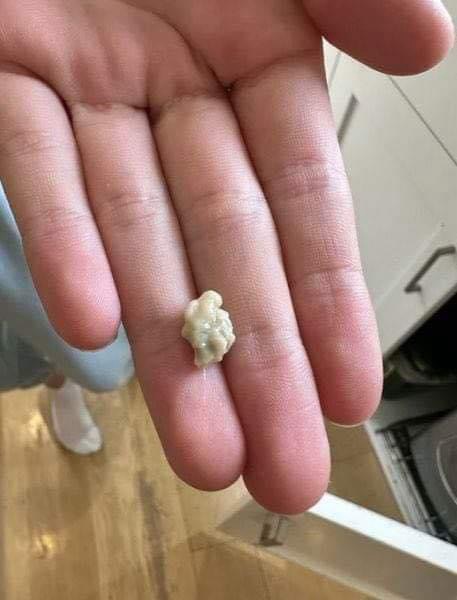Tonsil stones, also called tonsilloliths, are small, often hard lumps that can form in the folds and gaps of your tonsils.
These stones are made up of bits of food, bacteria, dead cells, and sometimes minerals like calcium. They are whitish or yellowish in color and have a texture similar to cottage cheese. While tonsil stones can be uncomfortable, they usually don’t cause serious health issues.
One of the main signs of tonsil stones is bad breath, as the bacteria trapped in the tonsils produce a strong odor. Aside from bad breath, some people might not even realize they have tonsil stones, as the symptoms are usually mild.
However, some individuals may experience a sore throat, swollen tonsils, or have a metallic taste in their mouth. Ear pain, difficulty swallowing, or frequent coughing can also occur, especially if the stones are large or if there are many of them. Tonsil infections may develop in more severe cases, but this is less common.
Tonsil stones often form when food particles or debris get trapped in the tonsil crypts—small pockets on the surface of the tonsils. Over time, this trapped material hardens into stones. Research suggests that about 10% of people will have tonsil stones at some point in their lives. In many cases, the stones will go away on their own, and people may not even notice them.

There are a few ways to deal with tonsil stones. If you want to remove them yourself, you can try using a cotton swab to gently push them out or gargle with salt water to loosen them.
Some people also use oral irrigators, which are devices that flush out the tonsil crypts with water, helping to dislodge the stones. Medicated gargles that contain antimicrobial ingredients can reduce the buildup of bacteria and help prevent future stones.
In more serious cases, where tonsil stones cause infections or significant discomfort, doctors may recommend a tonsillectomy, which is a surgical procedure to remove the tonsils. This is typically only considered when other methods don’t work, or if the stones keep coming back.
To prevent tonsil stones from forming, it’s essential to maintain good oral hygiene. Regularly brushing and flossing your teeth, gargling with salt water, and scraping your tongue can help reduce bacteria and food particles in your mouth.
Drinking plenty of water and managing allergies can also prevent excess mucus, which can contribute to stone formation. Some people find that drinking carbonated beverages can loosen tonsil stones, allowing them to come out naturally.
Although tonsil stones are often harmless and can be treated at home, it’s always a good idea to consult a doctor if they become painful, cause recurrent infections, or make you uncomfortable. Following good oral hygiene practices and taking preventive measures can help you avoid future problems.


